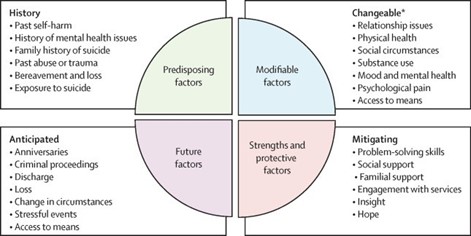When reviewing the admission assessment, the Registered nurse notes that a client was admitted to the mental health unit with involuntarily status. Based on this type of admission, the registered nurse should provide which intervention for this client?
Select one:
Monitor closely for opioid overdose.
Monitor closely for harm to a family member.
Monitor closely for severe anxiety and stress.
Monitor closely for using Methamphetamines.
The Correct Answer is C
When a client is admitted with an involuntary status, it means that the client did not consent to the admission and was likely admitted due to being a danger to themselves or others. This can lead to increased stress and anxiety for the client, so the nurse should closely monitor the client for signs of severe anxiety and stress.
Options a, b, and d are not appropriate interventions for a client admitted with an involuntary status.
Option a is more appropriate for a client with a history of opioid use.
Option b is more appropriate for a client with a history of violence or aggression towards family members.
Option d is more appropriate for a client with a history of methamphetamine use.
Nursing Test Bank
Naxlex Comprehensive Predictor Exams
Related Questions
Correct Answer is C
Explanation
Schizophrenia is a severe mental illness associated with an increased risk of suicide. Individuals with schizophrenia are at a higher risk of suicide due to the presence of symptoms such as depression, hopelessness, and social isolation. Unemployment is also a risk factor for suicide as it can contribute to financial and social stress.
The other options do have some risk factors, but not as high as the individual in option c. Alcohol use and being independent-minded are not necessarily significant risk factors for suicide, and being active in church can be a protective factor. While depression is a significant risk factor for suicide, it is not the only factor, and having two best friends may be a protective factor. Diabetes, in and of itself, is not a risk factor for suicide.

Correct Answer is A
Explanation
This response acknowledges the client's interest in complementary therapies and opens up a conversation about the different types available. It also allows the nurse to provide education and information about the potential benefits and risks of complementary therapies and how they may interact with the planned treatment.
Whether you are a student looking to ace your exams or a practicing nurse seeking to enhance your expertise , our nursing education contents will empower you with the confidence and competence to make a difference in the lives of patients and become a respected leader in the healthcare field.
Visit Naxlex, invest in your future and unlock endless possibilities with our unparalleled nursing education contents today
Report Wrong Answer on the Current Question
Do you disagree with the answer? If yes, what is your expected answer? Explain.
Kindly be descriptive with the issue you are facing.
